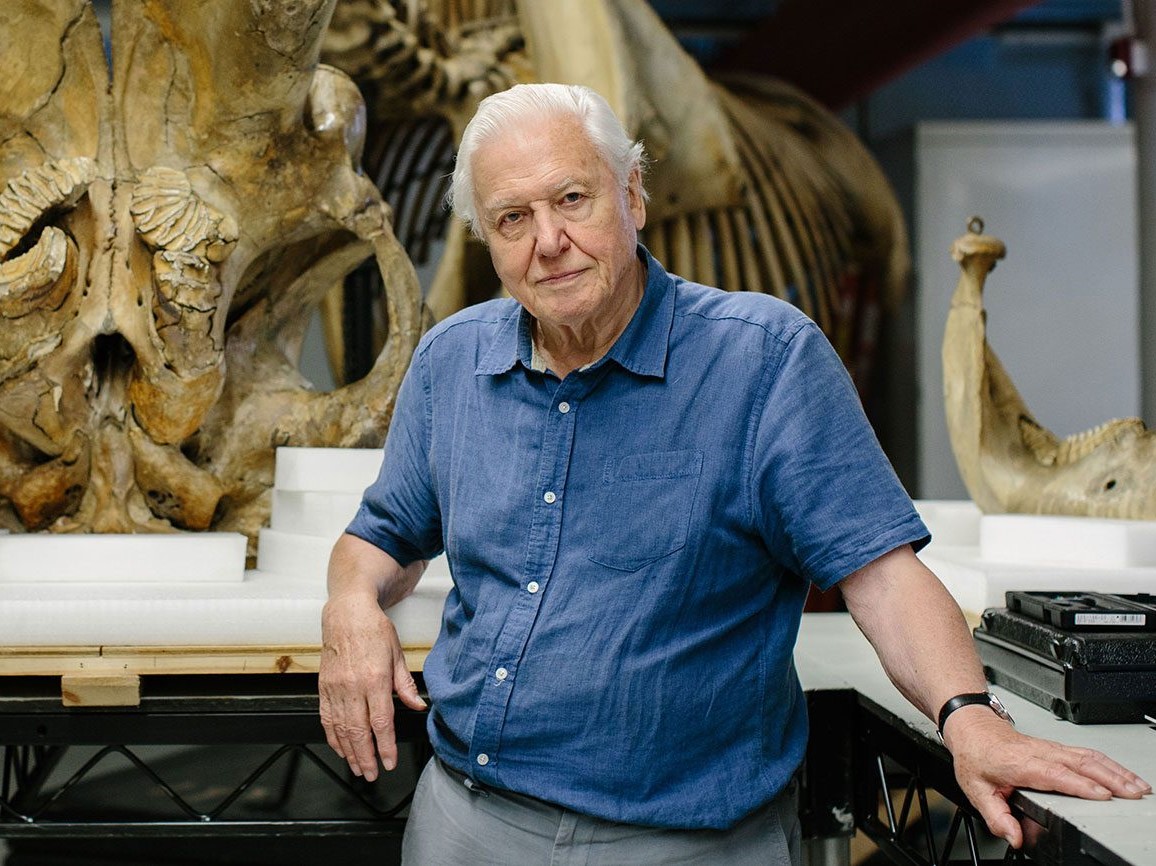It’s humankind’s dream to be able to experience the world for everything that it is: feel rain fall through your fingertips in the Amazon, watch elephants march through the African plains, swim with schools of fish across the Great Barrier Reef. In many ways, the ambitious, wondrous explorer in everyone starts and ends with imagination. However, one man, Sir David Attenborough, has been giving audiences across the globe a glimpse into the magnificently complex organisms and biomes of the natural world since 1979’s “Life on Earth.” Now, the 92-year-old legendary broadcaster is due to release a new five-part series, “Dynasties,” with longtime collaborator BBC, and it’s set to be everything the world loved about “Blue Planet II” and more.
Come Nov. 18, Attenborough will once again light up the screen with dazzling imagery, sweeping cinematic views, a triumphant score and of course, his trademark narration. What audiences may not be prepared for, however, is the new twist: family. Unlike the critically acclaimed series “Planet Earth II” and “Blue Planet II,” “Dynasties” focuses in on one specific family of an endangered species for each episode. Viewers will get the chance to step into the complex lives of chimpanzees, emperor penguins, lions, hunting dogs and tigers for an hour each night, a level of intimacy and focus never done before by Attenborough on such a large scale.
“It was quite a risky thing to do,” said Mike Gunton, executive producer and creative director at BBC Studios’ Natural History Unit, at a recent event in London to mark the show’s launch. “Many of us had worked on those sequenced shows and you spend a month with those creatures and you see an insight into a very short window of their lives. The frustration is that you leave them and you know their complex story is begging to be told [more]. This was an opportunity to tell those longer stories, more in depth and really feel part of these animals’ lives.”
Production for the new series was particularly anxiety-inducing. When Gunton initially proposed the idea to Attenborough, he was worried about the longevity of the shoots, which ended up spanning over four years. Shooting took 309 days for the series’ first episode, which follows the chimpanzee David as he fights to keep his alpha-male position from Luther, his strongest competitor. “I thought he [Gunton] was barmy – to devote two years to filming one group within one species and say ‘we will show you exactly what happens’ is either very brave or very foolish, because supposing nothing happens?” said Attenborough.
Not only was shooting long, it was also extremely exhausting and physically demanding. Attenborough and his team followed the animals through beautiful but rugged and hard-to-maneuver terrain, like Atka Bay in Antarctica and the plains of the Masa Mara reserve in Kenya. As they followed the chimpanzee David and the rest of his patch through the jungles of Senegal and Guinea, the crew endured 40C heat and walking distances as far as 15 miles. During the arctic shoots, crews had to “scrape ice from goggles and camera lenses” in -30C.
Nevertheless, the grueling effort put into the series is what makes “Dynasties” all the more special. The extended time living with the animals was a necessary step in capturing the key moments pivotal in showcasing the real-life narrative of the animals’ lives. Perhaps the most memorable moments of Attenborough’s cherished series “Planet Earth II” and “Blue Planet II” were the small moments audiences shared with the individual animals, the moments that gave the exquisite creatures a true, tangible story that unfolded right there on the television screen. In those snapshot moments of time, the events in the nature documentaries unfolded like classic binge-worthy television. What was going to happen next?

Unfortunately, quick instances like these often dissolved into the next animal, before anyone got the time to see the stories fully fleshed out. In this sense, “Planet Earth II” and “Blue Planet” are incredible feats of documentary cinema, but they did leave fans asking for more. Attenborough’s “Dynasties” is the solution.
Thanks to the unique structure of the new series, episodes don’t cut between different animals; rather, each species’ family is given its own hour-long episode. The new specificity and hyper-focused attention allows audiences to witness a good chunk of the animals’ dynamic, emotionally charged lives, something evident in David the chimpanzee’s drama-packed episode.
“Every single one of those chimps in that group had a different personality, and different character, and we got to know those — and by being able to get to know those we were able to read them a lot better, and therefore able to bring each story because we could see how those relationships were forming and changing,” said the episode’s director and producer, Rosie Thomas. David’s hour-long plight full of blood-thirsty competition, female admirers and a political battle for the spot as “King of the Jungle” is more reminiscent of a “Game of Thrones” season finale than a mundane Animal Planet doc.
However, violent attempts at taking the throne weren’t the only worries — for both David the chimpanzee and Sir David Attenborough. Environmental issues were a huge focus in the previous series, “Blue Planet II,” where Attenborough warned audiences of the toxicity of plastic usage and the disastrous impact it has on the world’s oceans. Following in its predecessor’s footsteps, “Dynasties” aims to achieve the same level of environmental education and awareness by informing viewers about the issue of humans infiltrating spaces where animals live.
“There is an acceptance that these animals are under pressure from humans,” said Attenborough. “How do you solve this? It’s raising people’s passion and belief and desire to recognize that animals have a right to space.” By projecting narrative stories about the struggles between animals and humans, like the conflict in India of tigers hunting children, the problem of space becomes more recognizable. It’s a sweeping issue, but Attenborough and his team manage to capture it in all its enormity.
So, whether you’re a fan of Attenborough’s acclaimed 40-year career and all the masterpieces he’s conjured up, or if you’re a new viewer seeking the thrill and wonder of observing the natural world in all its glory, “Dynasties,” is the new series for you. The whole world is out there, waiting for humankind to bear witness to it. Don’t let the guise of your television screen fool you; everyone is an explorer, and Attenborough is simply guiding the way.

















